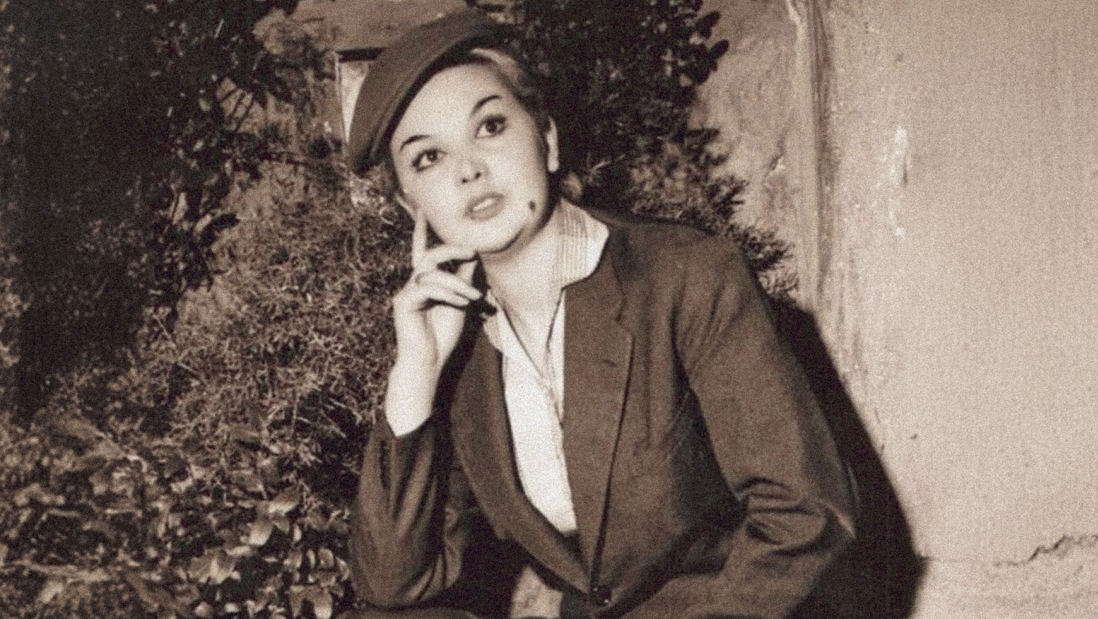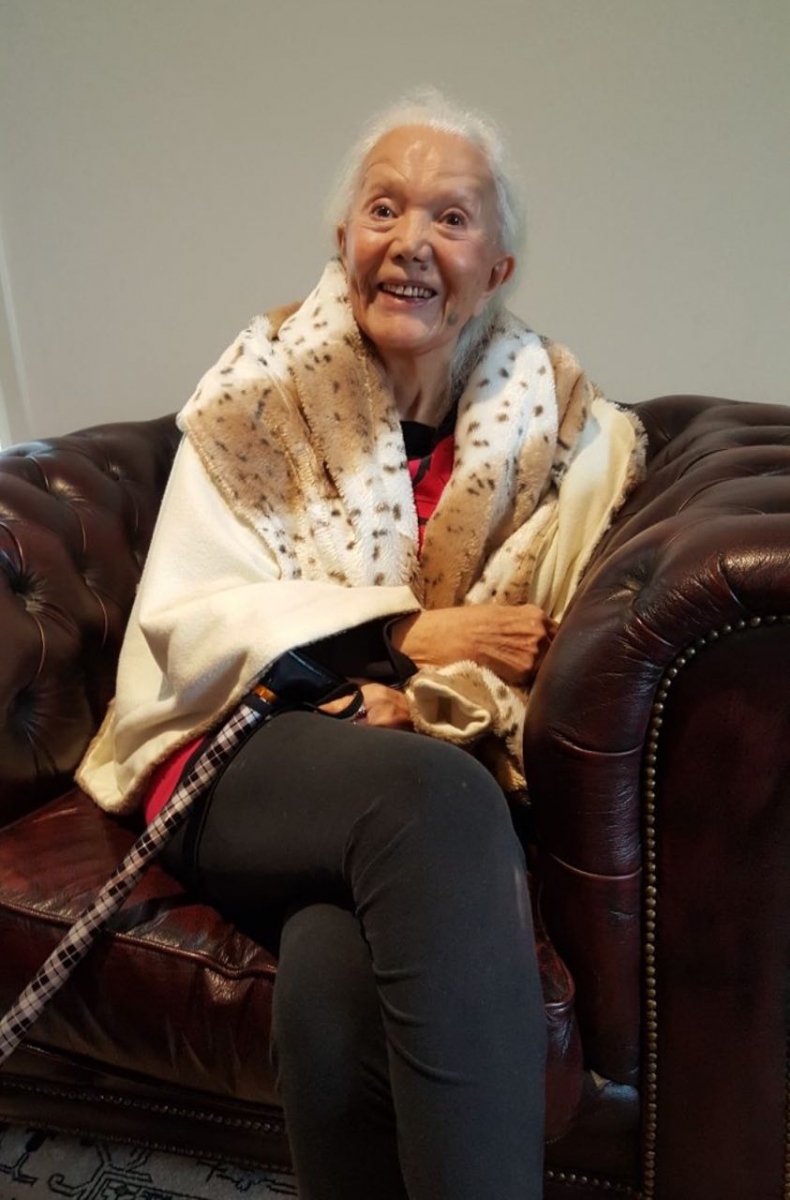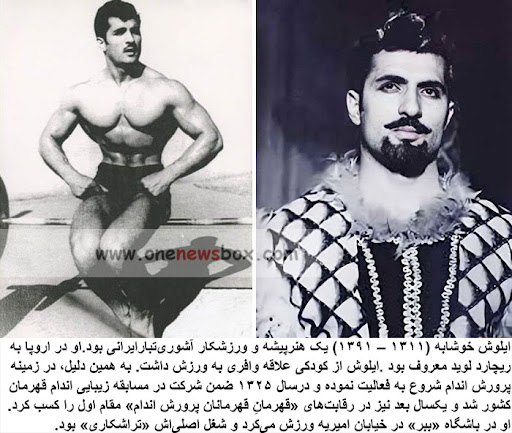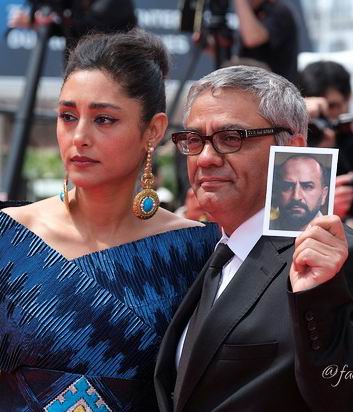|
|
| Welcome to Online Film Home! |
|---|
|
|
|

Rufia |
Birth name
Mah Jahan Selouki
Date of Birth
3 April 1930, Shishvan, Ajabshir, East Azerbaijan, Iran
Date of death
15 August 2023, Canberra, Australia
Rufia (َApril 3,1930 - August 15, 2023)
Mah Jahan Solouki, with the stage name Rufia, was an Iranian actress born in Shishvan, Ajabshir, Tabriz.
Rufia entered the world of cinema in the early 1950s and left the cinema after twelve years at the peak of popularity and fame. She said goodbye to acting many years before Azar Shiva, another famous Iranian actress, in protest of the status of women in Iranian cinema.
In 1955, she starred as Farrokh Lagha in "Prince Arsalan" (Amir Arsalan-e Namdar, 1955). Rufia acted in 9 movies during a period of 12 years.
She is best known for her roles as the title characters in the films A Party in Hell (Shab-neshini dar jahannam, 1956), Alish The Gypsy Girl (Alish Dokhtare Kowli, 1964), Storm in our Town (Toofan Dar Shahr Ma, 1958) and The Wild Angel (Fereshteh Vahshi, 1959).
Rufia died on August 15, 2023 at the age of 93 in Canberra, Australia.
Rufia, with the last name "Solouki", became known as "Farrokh Lagha of Iranian cinema" after her first appearance as Farrokh Lagha in the movie "Prince Arsalan" directed by Shapur Yasami. She was one of the most beautiful female Iranian actresses before the 1979 revolution. The black mole under her cheek was known as the "Ruffian mole" and young girls put moles like it on their faces.


Rufia Selouki was born on April 3, 1930 in the Shishvan village of Ajabshir in East Azerbaijan. Some Persian sources mention her real name as "Mah Jahan", but her relatives do not confirm this name and they all call her "Rufia".
Abbas Ali, Rufia's father, was one of the famous Baha'is of the region. He studied in Russia and was engaged in agriculture and horticulture in Shishvan. Rufia's mother's name was Farkhondeh and she was a Muslim. Mother's family was one of the known owners of Ajabshir. Some of the children of these parents chose the religion of their father and some of them chose the religion of their mother, among them Rufia accepted the religion of her father and kept living as a Baha'i.
All the members of the Selouki family in Shishvan were well-known and educated. Rufia's older brother was the director of Raazi High School in Ajabshir and the head of "Knowledge Corps". Like her brothers, Rufia was literate, which was not common among rural women at that time.
Rufia also had a talent for poetry and a book of her poems has been preserved. Rufia's interest in art eventually led her to cinema and theater.
She immigrated to Tehran as a young girl and worked as a hairdresser. Rufia hair salon was located on Kamali Street next to Loghman Hospital. After a short time, this barber shop became famous among the locals. The reputation of the barber shop doubled after appearing as Farrokh Lagha in "Prince Arsalan". Many women went there to have their hair styled by one of the most famous movie actors.
Rufia said in an interview that after seeing an advertisement for an actress in a film publication, she decided to introduce herself to the film production group.
At first, her mother opposed her decision. At that time, there was a lot of news, true or false, about the lives of actresses, and traditional families were not interested in their daughters appearing on screen. But Rufia's father encouraged his daughter to pursue acting.
"Prince Arsalan" was the first film in Rufia Selouki's acting career, which was released in Iranian cinemas in 1955. At first, Dr. Esmail Kushan (the film's producer) was against giving the role of Farrokh Lagha to Rufia, but finally Rufia was chosen for that role. The role opposite Rufia was played by Iloosh Khoshabe, an actor of Assyrian descent and an Iranian bodybuilding champion.

The story of the famous Amir Arsalan and his love for Farrokh Lagha was on the news in Iran's coffee houses. This movie was well received and was on the screens of cinemas for months.
Rufia appeared next in "A Party in Hell" in 1956. The film tells the story of a miser named Haji Jabbar who spends a night in hell sleeping. Rufia plays the role of Haji's daughter, whose father wants her to marry a rich old man against her will. In this film, Rufiya is a modern girl who stands against the patriarchal tradition ruling the society and does not obey the seemingly benevolent orders of men.
"A Party in Hell" was welcomed by the audience thanks to its new theme and stage design. This film was selected to compete in the main section of the Berlin Film Festival in 1958 and was the first Iranian film participating in a prestigious international festival.
Rufia has ten films in her film career:
1955: Prince Arsalan, directed by Shapur Yasami
1956: Life is sweet, directed by Majid Mohseni
1957: Rostam and Sohrab, directed by Mehdi Raeis-firooz and Shahrokh Rafi
1957: A Party in hell, directed by Mushegh Sarvari and Samuel Khachikian
1958: Storm in our Town, directed by Samuel Khachikian
1959: The Wild Angel, directed by Mehdi Raeis-firooz
1963: Women are angels, directed by Esmaeil Poorsaeid
1964: Alish The Gypsy Girl, directed by Samad Sabahi
1966: Shahnameh Akharesh Khoshe, directed by Mushegh Sarvari (unfinished production)
1967: The third victim, directed by Abolghasem Malekouti.
Rufia's fame and talent in acting brought her to the theater stage. When she left the cinema, he started working in the theater. "Eshghe Piri Gar Bejonbad" (1967), "Arshin Malalan" and "Professor Sosol" were among the plays that were staged with Rufia's performance.
Rufia Solouki, according to herself, never gave an interview to any magazine during her film career and always kept her personal life away from controversy. Although she was a popular actor, she did not have any close friends among actors and other people involved in the field of cinema. During the production of a film, she would sit in a corner and spend her time studying or preparing for the role.
The impact of the 1979 Islamic Revolution on Rufia's life:
Following the establishment of the Islamic Republic, Rufia's life, like other Bahá'ís, underwent a change and transformation. Persecution people of Baha'i faith became legal and official, their workplaces and homes were attacked. Every day news of the arrest or execution of Baha'is was published. Rufia was not only a Baha'i, but also one of the famous actors of the Pahlavi era. Therefore, after the revolution, her life was highly endangered.
Abbas Ali, Rufia's father, was together with his sons in Germany at the time of the revolution. But according to a note from Rufia, he decided to return to Shishvan to help his fellow Baha'is. When he arrived in Shisvan, he saw that his house had been burned and looted. He spent the night with one of his relatives in Shishvan and when he heard that they were going to arrest him, he fled to Tehran by car at night. After a few days, Rufia, who lived in Noor city in Mazandaran, followed her father and took him to her for care and nursing.
Abbas Ali Solouki died four years later in the hospital. They buried him with great effort in the Baha'i cemetery of Tehran, but after a while, this cemetery was destroyed by the order of the authorities of the Islamic Republic, and no trace of the corpses or graves remained.
After the death of her father, Rufia left Iran with her husband and went to Turkey. After she left Iran, they attacked his house and confiscated it.
She applied for asylum in Australia through the United Nations office in Turkey. Finally, in the winter of 1984, she went to Australia and settled in a small town called Cairns in the Australian aboriginal area and worked as a hairdresser for a living.
Rufia lived in this city for more than 30 years and moved to Canberra in 2017 for the treatment of glaucoma. As long as Rufia was alive, several Baha'i families living in Canberra nursed and cared for her. She died on 15 August 2023 at the age of 93 in Canberra.
Rufia's relatives remember that this famous Iranian cinema actress lived in longing for being away from her homeland until the end of her life and always missed Iran. (Source)
Selected filmography
Plays
Arshin Malalan
Professor Sosool
Eshghe Piri Gar Bejonbad (1965)
Actor
1967 The third victim
1964 Alish The Gypsy Girl
1963 Women are angels
1959 The Wild Angel
1958 Storm in our Town
1957 Rostam and Sohrab
1956 Life is sweet
1956 A Party in hell
1955 Amir Arsalan-e Namdar (as Farrokh Lagha)
Producer
1964 Alish The Gypsy Girl
Selected works of
Rufia
1964
Alish The Gypsy Girl | Alish Dokhtare Kowli (1964)
1963
Women Are Angels | Zanha fereshtehand (1963)
1959
The Wild Angel | Fereshteh Vahshi (1959)
1958
Storm in Our Town | Toofan dar shahre ma (1958)
1957
Rostam and Sohrab (1957)
1956
Life Is Sweet | Zendegi shirin ast (1956)
1956
A Party In Hell | Shab Neshini Dar Jahanam (1956)
1955
Prince Arsalan | Amir Arsalan-e Namdar (1955)
|
|
|
|

Cannes 2024 |
Choose an item to go there!
|
| |
|
|

